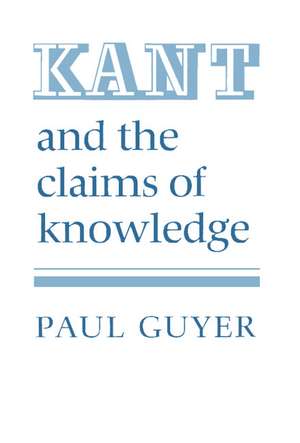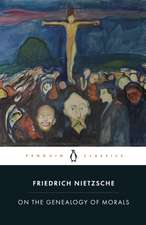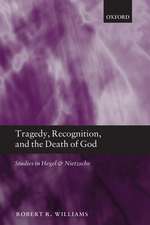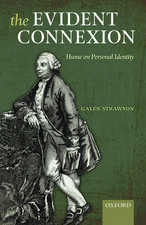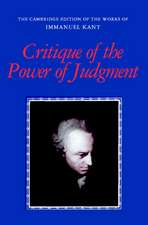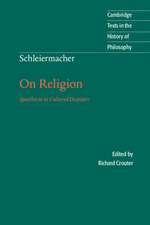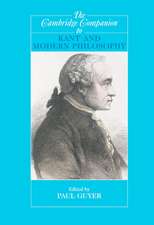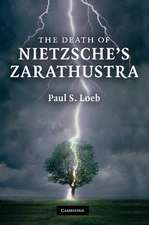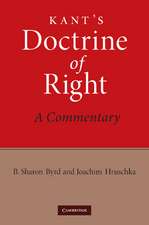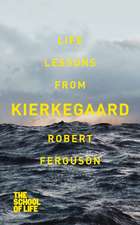Kant and the Claims of Knowledge
Autor Paul Guyeren Limba Engleză Paperback – 24 dec 1987
Preț: 238.60 lei
Nou
Puncte Express: 358
Preț estimativ în valută:
45.66€ • 49.58$ • 38.36£
45.66€ • 49.58$ • 38.36£
Carte disponibilă
Livrare economică 01-15 aprilie
Preluare comenzi: 021 569.72.76
Specificații
ISBN-13: 9780521337724
ISBN-10: 0521337720
Pagini: 500
Dimensiuni: 152 x 229 x 28 mm
Greutate: 0.75 kg
Editura: Cambridge University Press
Colecția Cambridge University Press
Locul publicării:New York, United States
ISBN-10: 0521337720
Pagini: 500
Dimensiuni: 152 x 229 x 28 mm
Greutate: 0.75 kg
Editura: Cambridge University Press
Colecția Cambridge University Press
Locul publicării:New York, United States
Cuprins
Acknowledgments; Notes on sources; Introduction; Part I. Kant's Early View: 1. The problem of objective validity; 2. The transcendental theory of experience: 1774–1775; Part II. The Transcendental Deduction from 1781 to 1787: 3. The real premises of the deduction; 4. The deduction from knowledge of objects; 5. The deduction and aperception; Part III. The Principles of Empirical Knowledge: 6. The schematism and system of principles; 7. Axioms and anticipations; 8. The general principle of the analogies; 9. The first analogy: substance; 10. The second analogy: causation; 11. The third analogy: interaction; Part IV. The Refutation of Idealism: 12. The problem, project, and promise of the refutation; 13. The central arguments of the refutation; 14. The metaphysics of the refutation; Part V. Transcendental Idealism: 15. Appearances and things in themselves; 16. Transcendental idealism and the forms of intuition; 17. Transcendental idealism and the theory of judgment; 18. Transcendental idealism and the 'Antinomy of Pure Reason'; Afterword; Notes; General index.
